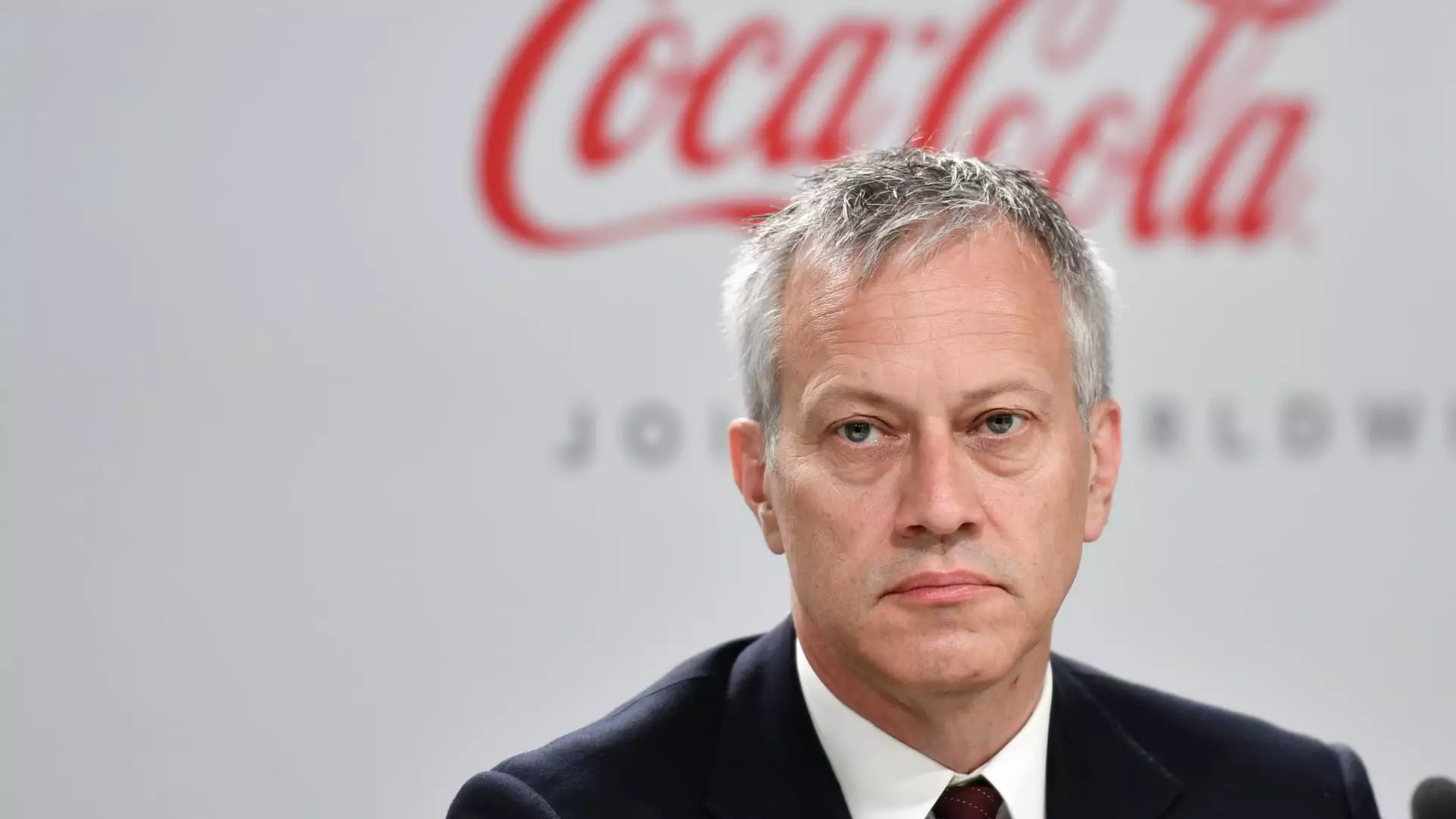In recent news, Coca-Cola found itself in a curious position as it navigated a potential crisis linked to its largest client, McDonald’s. The outbreak of E. coli associated with the fast-food giant’s Quarter Pounder burgers prompted concerns from various quarters, including investors and industry analysts. However, Coca-Cola’s CEO, James Quincey, provided a reassuring outlook during the company’s third-quarter earnings call, downplaying any substantial negative impact on their sales stemming from the outbreak.
Coca-Cola and McDonald’s have maintained a deep-rooted alliance for nearly seventy years, a partnership that has significantly benefited both entities. Coca-Cola is an essential vendor for McDonald’s, providing beverages that complement the franchise’s food offerings. In this context, Quincey’s remarks emphasize the strength of their collaboration, reflecting confidence that McDonald’s will manage the situation effectively. He stated, “We’re a big partner of McDonald’s; they’re a big partner of ours,” indicating that despite the crisis, both companies would support each other in overcoming the challenges posed by the outbreak.
Coca-Cola has even been proactive in its marketing efforts, as evidenced by reports that the beverage company contributed funds to promote McDonald’s $5 value meal earlier this summer. Such investment not only reinforces their partnership but also highlights Coca-Cola’s commitment to mutual success. It reveals a strategy where the company seeks to enhance its visibility in the fast-food segment, capturing consumers who may be seeking value-oriented dining experiences.
The diagnosis of an E. coli outbreak linked to McDonald’s Quarter Pounders raises essential questions about public health and consumer behavior. With 49 reported cases and one fatality linked to the outbreak, the Centers for Disease Control and Prevention’s announcement catalyzed scrutiny over McDonald’s quality control measures, particularly concerning ingredients unique to the Quarter Pounder such as fresh beef patties and onions. Given that cooking at designated temperatures usually eliminates the bacteria, the outbreak casts doubt on the operational standards applied.
McDonald’s immediate response—removing the Quarter Pounder from several Western states and halting the distribution of slivered onions—demonstrated a commitment to consumer safety. Its USA President, Joe Erlinger, expressed confidence in the brand’s overall product safety during an appearance on NBC’s “Today” show. This rapid reaction aims to reassure customers that McDonald’s values their health, but it also raises awareness of how quickly comfort with a brand can waver in the face of public health crises.
Interestingly, the E. coli outbreak does not occur in isolation. The backdrop of sluggish consumer spending trends is critical to understanding the potential fallout on both McDonald’s and Coca-Cola. In an environment where consumers are becoming increasingly budget-conscious, any incident that compromises brand trust could have cascading effects on sales. Factors such as inflation and changing consumer habits have already exerted pressure on both fast-food chains and beverage companies alike. Coca-Cola’s revenue outpacing Wall Street estimates in Q3, largely through price increases, underscores the delicate balancing act companies must perform—maintaining customer engagement while managing cost inflation.
Amidst declining restaurant expenditures, fast-food companies have introduced discounts to lure customers back into their outlets. McDonald’s efforts to regain patronage via price promotions may clash with the market’s reaction to the E. coli scare, leading to uncertain sales trajectories in the immediate future.
Coca-Cola’s optimistic approach illustrates both the resilience of its brand and the steadfastness of its partnership with McDonald’s, even amid crisis. The outcome of the E. coli outbreak and its implications for McDonald’s sales remain fluid. However, Coca-Cola’s commitment to support its longest-standing partner speaks volumes about the enduring nature of their relationship. This situation serves as a reminder of the critical intersections between public health, consumer trust, and corporate strategy in the dynamic marketplace of the food and beverage industry. Ultimately, while immediate challenges loom, both companies have proven adaptable, navigating uncertainties in a way that could pave a path forward for their collaborative success.


Leave a Reply